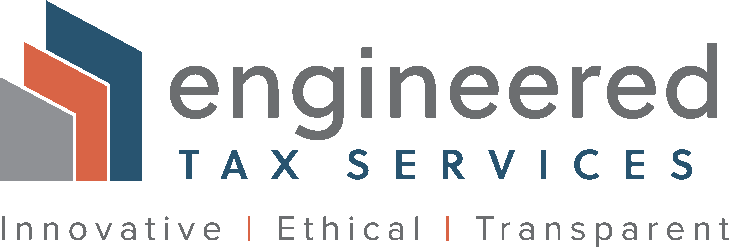Taxes: they're unavoidable, but that doesn't mean you can't be strategic. As a real estate investor or business owner, understanding bonus depreciation and 1031 exchanges can substantially lower your tax burden and let you reinvest more of your hard-earned profits. Knowing when to use each tool (or even combine them) can make a huge difference to your bottom line. So, let's break them down and see how they can work for you.

Bonus Depreciation: All About Upfront Deductions
Think of bonus depreciation as an accelerated way to write off the cost of big purchases. With traditional depreciation, you spread the cost of an asset over several years. But with bonus depreciation, you can deduct a hefty chunk (sometimes even 100%) of the cost right in the year you buy it.
What Assets Are Included?
Generally, anything with a lifespan of 20 years or less is fair game. This includes:
- Manufacturing equipment
- Computers and software
- Office furniture
- Some building improvements (think roofs, HVAC and security systems)
Advantages of Bonus Depreciation
Bonus depreciation offers substantial benefits. You see immediate tax savings by lowering your taxable income, plus you free up more cash flow that can be used for reinvestment, upgrades or building your reserves.
A Note on Recent (and Proposed) Tax Changes
Bonus depreciation rules get tweaked often, making it important to stay up to date. Currently, the bonus depreciation deduction percentage is scheduled to phase out as follows:
- 2023: 80%
- 2024: 60%
- 2025: 40%
- 2026: 20%
Additionally, a proposed tax bill (Tax Relief for American Families and Workers Act) is under consideration. If passed, this bill would:
- Bring back full 100% bonus depreciation immediately
- Extend 100% deduction through 2025, with adjustments for longer-life assets through 2027
- Set up a gradual phase-down of the deduction over five years.
Remember, tax laws are complex, and proposed bills may not pass in their current form. Consulting with a tax professional is the best way to ensure you're maximizing benefits and making informed decisions based on the most current regulations.
1031 Exchanges: Real Estate Tax Deferral
If you sell an investment property, your capital gains tax bill can be hefty. A 1031 exchange lets you delay paying those taxes by reinvesting the money from the sale into another “like-kind” property. It's not permanent forgiveness, but it is a powerful way to keep your investment dollars working for you without an immediate tax bill.
1031 Rules You Need to Know
1031 exchanges come with important rules and deadlines. You have 45 days after the sale of your relinquished property to formally identify (in writing) potential replacement properties. Then, you must close on the purchase of the new property within 180 days of the initial sale.
A qualified intermediary (QI) is essential in a 1031 exchange. They act as a neutral third party, holding the sale proceeds and facilitating the transaction according to all IRS requirements. This protects you and ensures you receive the full tax benefit.
To qualify, both the relinquished property and the replacement property must be held for investment or use in your business. Additionally, the replacement property must be of equal or greater value than the one sold.
The Big Benefit (And Some Things to Consider)
A 1031 exchange defers capital gains taxes. With more cash on hand, you can buy bigger (or multiple) properties, boosting your portfolio even faster. Remember, 1031 exchanges are mostly limited to real property, and your original tax basis carries over—something to factor into future tax planning.
Bonus Depreciation vs. 1031: Which to Choose?
| Bonus Depreciation | 1031 Exchange | |
| Scope of Application | Depreciable personal property (machinery, equipment, some building improvements) | Real estate held for investment or business use |
| Nature of Tax Benefit | Immediate deduction | Capital gains tax deferral |
| Eligibility Criteria | Asset type and lifespan guidelines | “Like-kind” property within real estate |
| Procedural Complexity | Relatively straightforward (handled via tax return) | Strict timelines, requires qualified intermediary |
When to Focus on Bonus Depreciation
- Substantial equipment investment: If you're making major equipment purchases, bonus depreciation lets you offset that cost through accelerated deductions.
- Need for current-year deductions: When you anticipate higher taxable income in the current year, the immediate tax shield from bonus depreciation can be incredibly valuable.
- Offsetting investment gains: If you have large capital gains from non-real-estate investments, maximizing deductions through bonus depreciation can minimize your overall tax hit.
When a 1031 Exchange Might Be Right
- Portfolio expansion: A 1031 exchange is ideal when you want to upgrade to larger or multiple properties. Instead of losing a chunk of your profit to taxes, you reinvest the full amount from the sale to boost buying power.
- Long-term investment horizon: Capital gains tax deferral has a snowball effect. Each successful 1031 exchange lets you compound investment growth without an immediate tax bite.
- Diversifying assets: 1031 rules give flexibility within real estate. Exchange an apartment building for a commercial space, raw land for a development site, etc.
Using Both Strategies in Tandem
It's possible to use both! Let's say you receive some cash in a 1031 exchange, which is usually taxable. If you also purchase or improve equipment related to your investment property, using bonus depreciation on those expenses gives you deductions to offset the taxes owed on the capital gains.
Get The Most Out of These Tax Breaks
Bonus depreciation and 1031 exchanges offer smart advantages for investors and business owners when used carefully. Choosing the right tool isn't always an “either/or” decision—they can work strategically together. And of course, the ever-changing tax landscape makes this even trickier! This is why having a trusted tax advisor in your corner is critical.
At Engineered Tax Services, we specialize in helping investors and business owners like you navigate these tax advantages. Contact us today for a consultation to explore how we can enhance your tax strategy.




